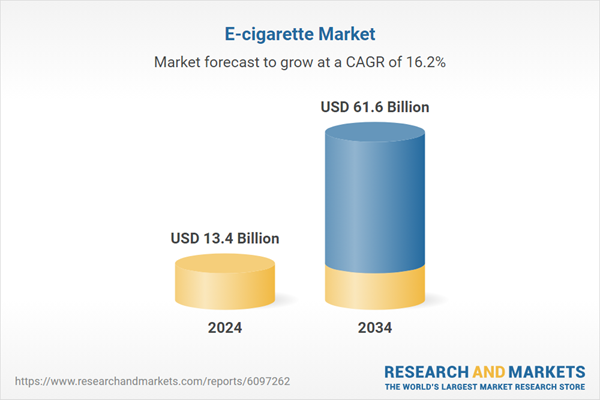Environmental concerns have prompted some brands to incorporate sustainable materials into their products, addressing the growing demand for eco-friendly options. This shift is not only a response to consumer preferences but also part of broader efforts to align with international sustainability standards and reduce the environmental footprint of manufacturing processes. Companies use recycled content, responsibly sourced wood, and biodegradable alternatives in decking products. These eco-conscious innovations not only appeal to green-minded buyers but also contribute to brand differentiation in a competitive market. In addition, manufacturers are developing materials that offer extended durability and require less maintenance, reducing the need for frequent replacements.
In 2024, the disposable vapes segment generated USD 9.65 billion and is expected to grow at a CAGR of 7% during 2025=2034. These devices are favored for their simplicity, portability, and variety of flavors. They are prefilled, require no charging, and are ready to use, making them an attractive option for new users or those seeking a hassle-free experience. The availability of disposable vapes in convenience stores, gas stations, and other retail locations has further increased their accessibility.
The offline retail channels segment accounted for 56.7% share in 2024 and is expected to continue growing at a rate of 5.6% until 2034. Consumers appreciate the in-store experience, which allows them to sample flavors and nicotine levels before purchasing. Physical stores also provide opportunities for brands to engage with customers through product demonstrations, promotional offers, and events, fostering trust and brand loyalty.
U.S. E-cigarette Market in 2024, accounting for a 36.2% share attributed to the high demand for smoking alternatives and regulatory actions that have validated products through the Premarket Tobacco Product Application (PMTA) process. The presence of major e-cigarette brands and the widespread availability of products in retail outlets have further strengthened the market position in the U.S.
Key players in the e-cigarette industry include Blu, Elf Bar, GeekVape, Innokin, Lost Mary, Lost Vape, MC, MOK, PAX, Pulze, SMOK, Suorin, Vaporesso, and Vuse. To strengthen their market presence, companies in the e-cigarette industry are adopting several strategies. These include expanding their product portfolios to cater to diverse consumer preferences, investing in research and development to innovate and improve product quality, and enhancing their online and offline marketing efforts to reach a broader audience. Additionally, companies are focusing on compliance with regulatory standards to ensure product safety and gain consumer trust. Collaborations and partnerships with retailers and influencers are also being pursued to increase brand visibility and consumer engagement. Furthermore, some companies are exploring sustainable practices in product design and packaging to appeal to environmentally conscious consumers.
Comprehensive Market Analysis and Forecast
- Industry trends, key growth drivers, challenges, future opportunities, and regulatory landscape
- Competitive landscape with Porter’s Five Forces and PESTEL analysis
- Market size, segmentation, and regional forecasts
- In-depth company profiles, business strategies, financial insights, and SWOT analysis
This product will be delivered within 2-4 business days.
Table of Contents
Companies Mentioned
The companies profiled in this E-cigarette market report include:- Philip Morris International
- RELX International
- British American Tobacco
- Japan Tobacco International
- Shenzhen Smoore Technology
- Imperial Brands PLC
- KT&G Corporation
- MOTI International
- Voopoo Technology
- Shenzhen IVPS Technology
- Aspire (Eigate)
- Innokin Technology
- Geekvape
- Altria Group
- Elf Bar (iMiracle Shenzhen)
Table Information
| Report Attribute | Details |
|---|---|
| No. of Pages | 178 |
| Published | October 2025 |
| Forecast Period | 2024 - 2034 |
| Estimated Market Value ( USD | $ 13.4 Billion |
| Forecasted Market Value ( USD | $ 61.6 Billion |
| Compound Annual Growth Rate | 16.2% |
| Regions Covered | Global |
| No. of Companies Mentioned | 16 |









